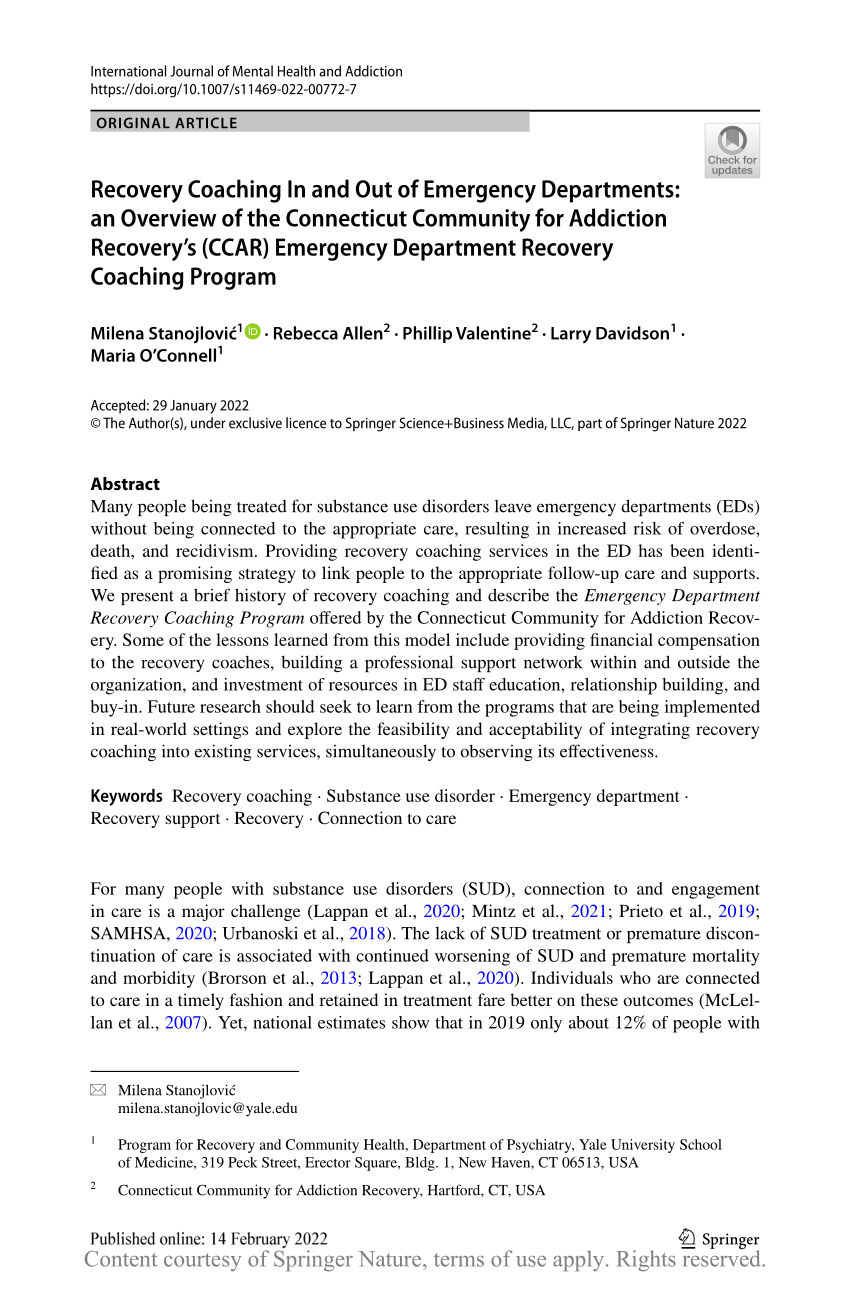Headline
An emergency department (ED)-based peer recovery coaching program showed that peer recovery coaching can be seamlessly integrated into the workflow of busy hospital EDs to address the longer-term needs of people with substance use disorders (SUD).
Context
EDs have been recognized as an important setting to identify and connect people with SUD to treatment. As EDs are often overburdened and lack adequate SUD referral mechanisms, peer recovery coaches are increasingly being implemented in these settings to provide patient engagement and transition support to community-based SUD treatment and harm reduction services. In 2017, the Emergency Department Recovery Coaching Program offered by the Connecticut Community for Addiction Recovery (CCAR) became one of the first recovery coaching services in an ED in the country. CCAR recovery coaches are people in recovery (or friends or family members of those suffering with a SUD), who have a passion for supporting others on their pathways towards recovery. Patients admitted into EDs as a result of an overdose or other SUD-related crisis connect with a recovery coach, who will connect the patient to addiction treatment or community supports, coordinate transportation (as needed), and offer telephonic follow-up for ten days after discharge.
Findings
The program has been successfully implemented in most of Connecticut’s acute care hospitals and has enrolled over 10,000 people. Medical staff in these settings have recognized the effectiveness of the CCAR recovery coaches, reporting that the program alleviates the workload in busy EDs and can increase the likelihood of patients successfully engaging in SUD aftercare. Further, peer recovery coaches’ modeling of compassion and empathy has been credited with shifting the culture in EDs. The program has established several best practices including applying a team-based approach, paying recovery coaches an adequate wage, training other staff about recovery coaching in advance of implementation, and seeking reimbursement opportunities through Medicaid.
Takeaways
CCAR’s program implementation and growth can serve as a case study for other hospitals interested in developing their own programs.



